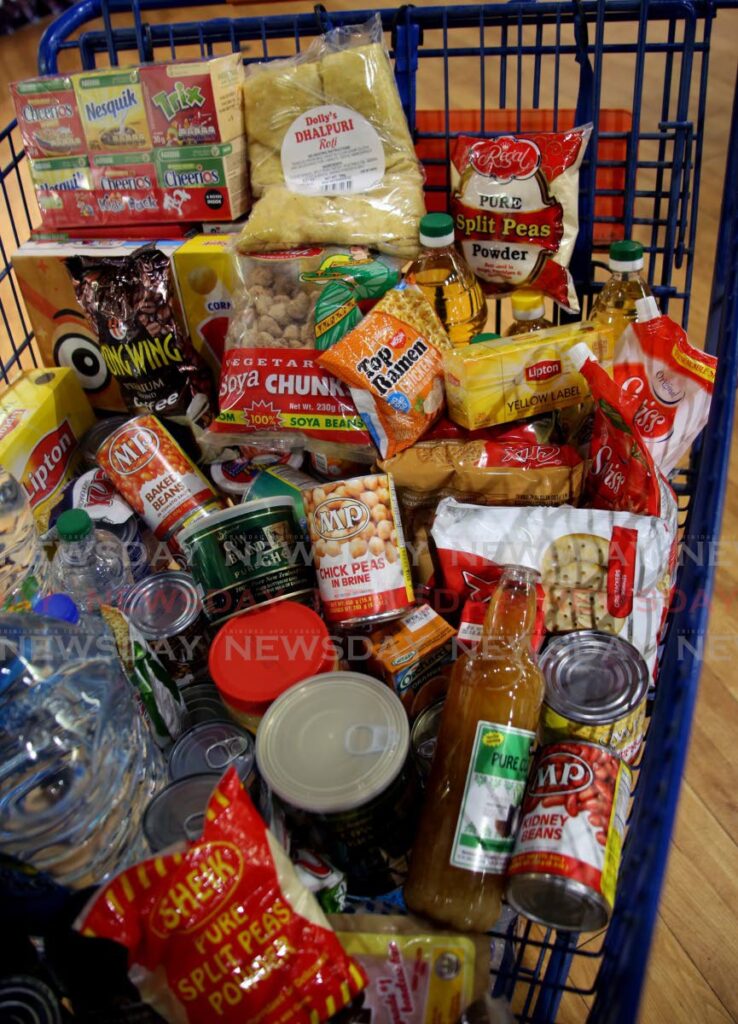Central Bank forecasts increase in food prices next year

The Central Bank has forecast increased food prices into 2022 despite the government’s removal of value-added tax (VAT) on essential food items.
In its Monetary Policy Report for November 2021, the bank said while the VAT removal measure was aimed at providing some ease to consumers, it may only be temporary owing to the increasing cost of imported foods.
“The size of their effects (VAT removal and reintroduction of VAT on certain luxury goods) will depend on the weights of the affected items in the Retail Price Index (RPI) and on the ability of households and companies to adjust to these measures.
“The continued growth in international food prices during the second half of 2021 and the expectation of continued elevated international food prices in the short-term suggest that domestic food prices may trend higher in the coming months.”
In the 2021-2022 budget presentation, Finance Minister Colm Imbert announced that effective November 1, 2021, items such as biscuits, cooking oil, canned vegetables, cornflakes, canned fish and meat, curry, juice, sausages and ham, ketchup, bottled water, pigtail, among others would be exempt from the 12.5 per cent VAT.
The Central Bank also listed increased freight rates, restrictions, slowdowns and bottlenecks in supply chains, as a result of the pandemic, as well as extreme weather patterns for the continued disruptions in food prices.
“Core and food inflation are expected to maintain an upward trend in the short-term, especially in light of the announced price hikes for maxi and taxi fares, air conditioning units, newspapers, bread, and local confectionery.
“Concerning food inflation, the sustained increases in international food prices in 2021 may continue to pass through to local food prices, albeit with a lag. Additionally, local food importers’ costs may continue to be impacted by the international shortage of shipping containers and higher shipping costs (freight and insurance).”
Additionally, the Central Bank said market uncertainty was also expected, which in turn would put a drag on economic recovery, since impacts included domestic and foreign interest rates, currency values, and capital flows worldwide.
It said the domestic economy continued to contract in the second quarter of 2021 owing to lower energy and non-energy sector activity.
“The TT/US interest rate differentials are expected to remain mostly stable but may narrow rapidly if US interest rates increase at a faster pace amidst a US yield curve that has already shown signs of flattening.
“Such action can potentially impact foreign exchange flows and domestic credit market conditions.”
The Central Bank further added that the pandemic continued to dampen the production of goods and services and data showed that for the second quarter of 2021 domestic production was 7.2 per cent lower when compared to the same period last year.
The energy sector, it said, decreased 9.4 per cent, with the supply of natural gas falling by 22.1 per cent, which overshadowed the 6.5 per cent year-on-year increase in crude oil production during the three-month period.
Refining activity fell by 39.9 per cent owing to the falloff in the production of LNG because of the closure of Atlantic Train I during the period.
Ammonia output dropped by 8.2 per cent, and methanol production boosted overall petrochemicals sector activity to 7.7 per cent in the second quarter of 2021, it said.
The non-energy sector fell by 5.7 per cent, mainly due to the public health restrictions, with contractions in construction activity recording a 41.4 per cent decline, wholesale and retail trade declined by 16.6 per cent and manufacturing estimated a decline of 1.5 per cent.
Improvements were recorded in the electricity and water, financial and insurance sector and transportation and storage.
The Central Bank added that covid19 variants such as delta and omicron have heightened uncertainty and volatility, but said increased vaccinations can assist and support domestic recovery.


Comments
"Central Bank forecasts increase in food prices next year"